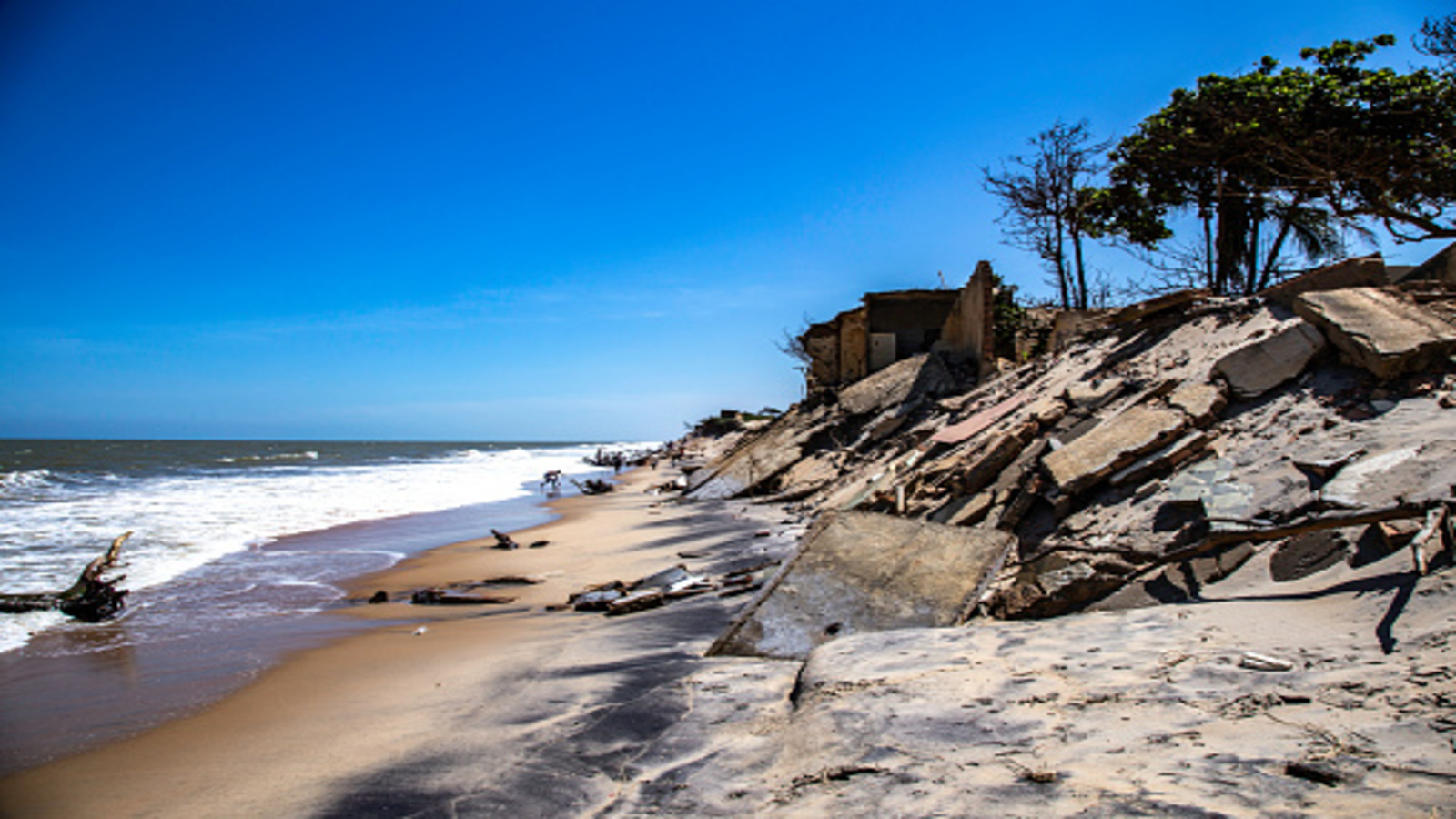At night, the sound of ocean waves during high tide keeps Atafona beach residents awake, and scared.
During the day, vultures perch on the rubble of the last houses taken by the Atlantic Ocean create an apocalyptic scene.
Atafona, a resort in the northern region of Rio de Janeiro state, has been eroding away at a rate of about three metres per year. Experts suggest a combination of factors for the causes of this 40-year-old phenomenon, from human inaction to the effects of climate change.
Lucia Naegele, a resident of the region, fondly keeps the memories of beach parties and Carnival balls in a beachside club that today is submerged.
“My sisters and I would go in costume to enjoy the band and, on the last day of Carnival, the dance ended at the seaside,” Naegele said. “Today that club no longer exists.”
She believes city hall should be held responsible for what happens in the district.
“For years they’ve profited a lot from oil royalties and done nothing to try to stop the advance of the sea,” Naegele said. “The construction of Porto do Açu made the situation much worse, making the sea advance even more.”
Porto do Açu is a nearby industrial port complex that has won awards for its design but also raised the hackles of environmentalists.
Naegele says she has witnessed friends’ houses being completely swallowed up by the sea. For her, the possibility of losing the beach is terrifying.
“It’s my family’s only home,” she said.
Yet, apparently, it will be inevitable.
That’s because, since the beginning, the region has had a disorderly housing occupation on its coast. The construction eliminated the first natural line of defense: sand dunes and vegetation.
Added to this is the reduction in the volume of the Paraíba do Sul River, one of the main rivers in southeastern Brazil. With less water, transporting sediment to the mouth of the river in Atafona becomes an arduous task.
The “deficit” of sediments does not allow for the natural replenishment of the beach, which retreats as the sea advances.
The meeting of river and sea, which should be a dazzling spectacle, has become a matter of concern for the inhabitants of the region, left on the sidelines of an uncertain future.
Law student Gabriella Salerno, who also lives in the area, laments what appears to be the fate of Atafona beach.
“Many people lost their homes and were forced to move. The city hall has already received several proposals for solving the problem and nothing was done,” she said.
According to São João da Barra’s City Hall, responsible for the Atafona district, the advance of the sea has already destroyed 500 homes and businesses.
Informal estimates made by local residents and researchers say that number could be higher, especially with regard to the number of people forced to move to other cities or states, exceeding 2,000 people. Currently, Atafona has 6,779 inhabitants.
To date, three proposals have been formally presented to the city hall to contain erosion, involving measures such as the construction of breakwaters to slow down the strength of the sea and the artificial recovery of the beach, transporting sediments to the river.
The Municipal Council for the Environment and Sustainable Development of São João da Barra did not respond to attempts to contact them in time for this publication.

